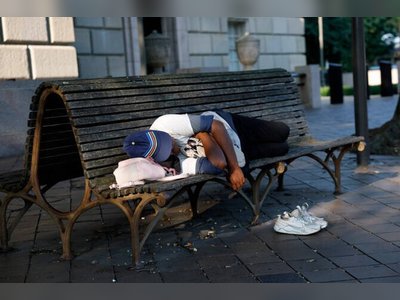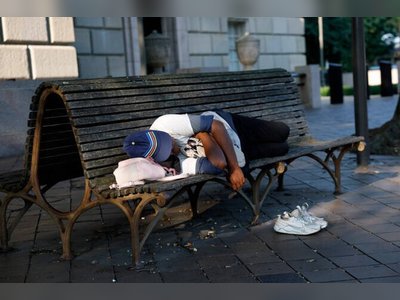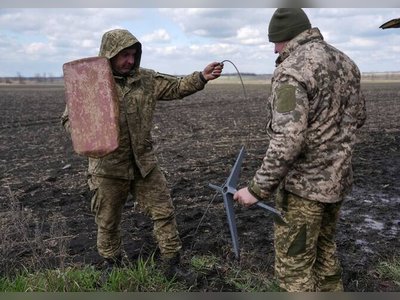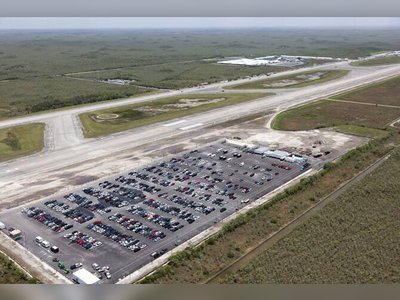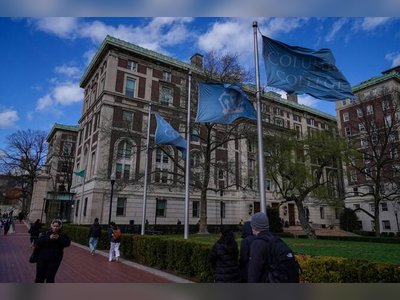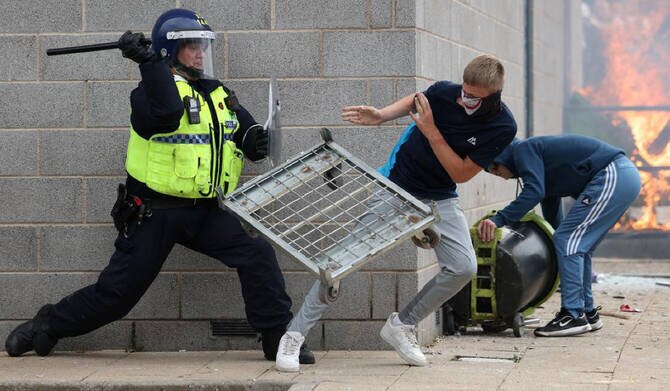
UK Fears New Summer of Unrest Amid Anti-Immigrant Protests
Concerns grow as UK grapples with violent anti-immigrant demonstrations echoing last year's riots.
Epping: Britain is bracing itself for a potential new summer of unrest, a year after the nation was shaken by its most severe riots in decades.
The latest round of tension stems from protests against immigrants that have intensified since disturbances erupted outside an asylum seekers' hotel in Epping, located northeast of London.The demonstrations, marked by confrontations and injuries to law enforcement officers, have led to a heightened state of alert among authorities.
As of now, eighteen individuals have been apprehended for their involvement in the protests, with seven facing charges, according to Essex police.These events have raised alarm bells within the Police Federation, whose chairwoman, Tiff Lynch, has cautioned that the recent unrest is not an isolated incident.
Instead, it serves as a warning sign of simmering tensions and exposes gaps in preparedness to address such issues.
Lynch's comments were published in the Daily Telegraph, reflecting the gravity with which the situation is being viewed.The protests have been characterized by chants advocating for children's protection and the deportation of 'foreign criminals'.
The demonstrations' fervor has been stoked by inflammatory rhetoric on social media platforms, fueled by far-right activists.
These messages amplify sentiments that have become particularly acute given the recent influx of irregular migrants entering the UK via the Channel and the country’s economic instability.A pivotal moment last year, on July 29, 2024, marked a turning point in public sentiment following the tragic stabbing deaths of three young girls in Southport.
Subsequent misinformation attributed these crimes to an immigrant, which exacerbated existing ethnic tensions leading to widespread riots across the nation.In response to the current protests, the government has been actively working to address the housing of asylum seekers; their numbers have decreased from 400 to 200 hotels since the issue came into prominence.
Cabinet Minister Jonathan Reynolds emphasized that the government and relevant agencies are preparing for all eventualities, acknowledging public frustration but assuring efforts to resolve the situation.The political landscape is increasingly sensitive as well, with the rise of Reform UK, a far-right party advocating for stricter immigration policies, affecting Labour Prime Minister Keir Starmer's administration.
The Epping protests were particularly inflamed by the arrest and charge of an asylum seeker accused of sexual assault, echoing the circumstances that sparked last year’s unrest.Despite efforts to quell tensions in Epping, a suburb with a population of 12,000, concerns about potential future disturbances remain.
The local council has taken measures by passing a motion demanding the government cease housing asylum seekers at the Bell Hotel, where several protests have occurred.Experts like Aurelien Mondon, a professor focusing on far-right discourse, predict that such unrest may not be confined to Epping alone.
Anti-immigrant demonstrations have already been seen in other towns, including Diss in Norfolk and Ballymena in Northern Ireland, which saw clashes over the alleged involvement of migrants in serious crimes.The potential for further riots is a pressing concern as social media continues to play a significant role in organizing these protests.
Mondon cautions against underestimating this factor while also recognizing that such platforms can facilitate coordination among extreme-right groups without solely dictating their actions.
The latest round of tension stems from protests against immigrants that have intensified since disturbances erupted outside an asylum seekers' hotel in Epping, located northeast of London.The demonstrations, marked by confrontations and injuries to law enforcement officers, have led to a heightened state of alert among authorities.
As of now, eighteen individuals have been apprehended for their involvement in the protests, with seven facing charges, according to Essex police.These events have raised alarm bells within the Police Federation, whose chairwoman, Tiff Lynch, has cautioned that the recent unrest is not an isolated incident.
Instead, it serves as a warning sign of simmering tensions and exposes gaps in preparedness to address such issues.
Lynch's comments were published in the Daily Telegraph, reflecting the gravity with which the situation is being viewed.The protests have been characterized by chants advocating for children's protection and the deportation of 'foreign criminals'.
The demonstrations' fervor has been stoked by inflammatory rhetoric on social media platforms, fueled by far-right activists.
These messages amplify sentiments that have become particularly acute given the recent influx of irregular migrants entering the UK via the Channel and the country’s economic instability.A pivotal moment last year, on July 29, 2024, marked a turning point in public sentiment following the tragic stabbing deaths of three young girls in Southport.
Subsequent misinformation attributed these crimes to an immigrant, which exacerbated existing ethnic tensions leading to widespread riots across the nation.In response to the current protests, the government has been actively working to address the housing of asylum seekers; their numbers have decreased from 400 to 200 hotels since the issue came into prominence.
Cabinet Minister Jonathan Reynolds emphasized that the government and relevant agencies are preparing for all eventualities, acknowledging public frustration but assuring efforts to resolve the situation.The political landscape is increasingly sensitive as well, with the rise of Reform UK, a far-right party advocating for stricter immigration policies, affecting Labour Prime Minister Keir Starmer's administration.
The Epping protests were particularly inflamed by the arrest and charge of an asylum seeker accused of sexual assault, echoing the circumstances that sparked last year’s unrest.Despite efforts to quell tensions in Epping, a suburb with a population of 12,000, concerns about potential future disturbances remain.
The local council has taken measures by passing a motion demanding the government cease housing asylum seekers at the Bell Hotel, where several protests have occurred.Experts like Aurelien Mondon, a professor focusing on far-right discourse, predict that such unrest may not be confined to Epping alone.
Anti-immigrant demonstrations have already been seen in other towns, including Diss in Norfolk and Ballymena in Northern Ireland, which saw clashes over the alleged involvement of migrants in serious crimes.The potential for further riots is a pressing concern as social media continues to play a significant role in organizing these protests.
Mondon cautions against underestimating this factor while also recognizing that such platforms can facilitate coordination among extreme-right groups without solely dictating their actions.




